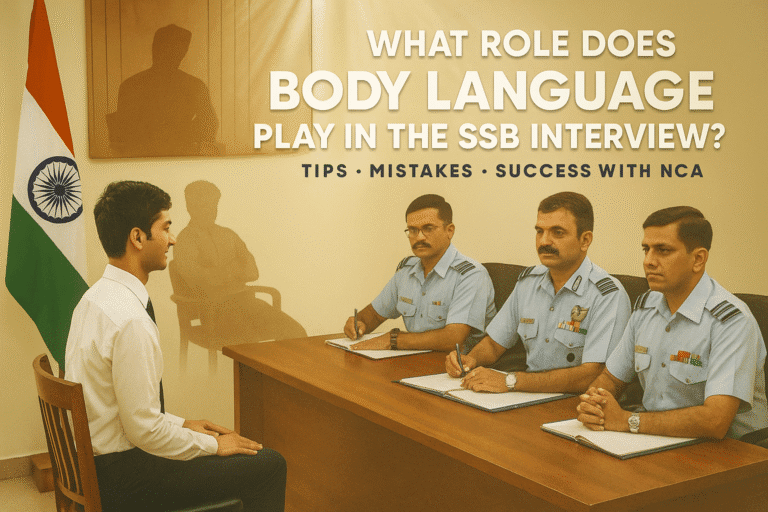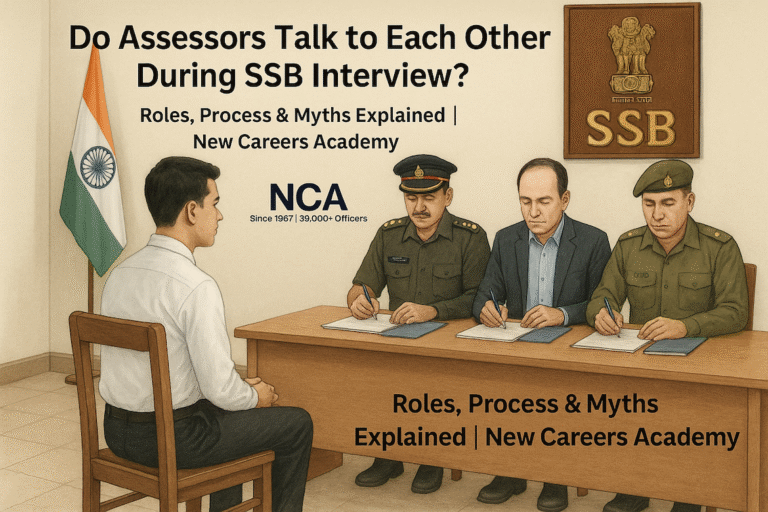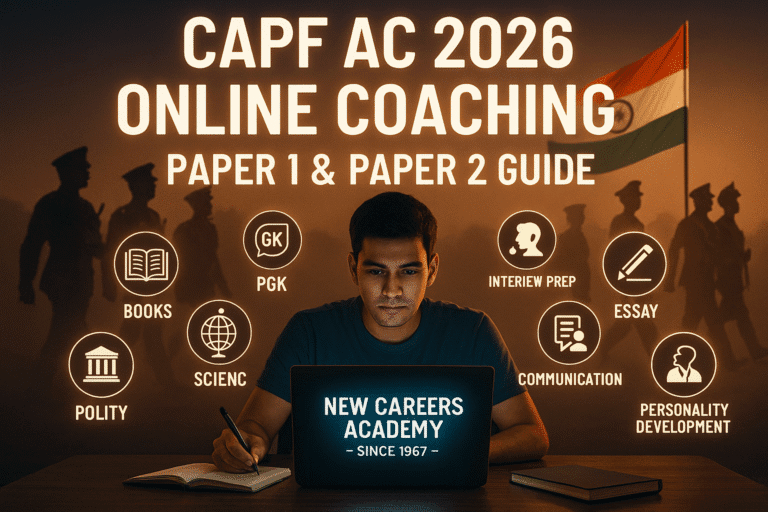Ace the AFCAT in 30 Days: A Strategic Section-Wise Guide
Aspiring to join the Indian Air Force and looking to conquer the AFCAT 2 2025 exam in a limited timeframe? A focused 30-day preparation strategy is your key to success. This guide provides a section-wise breakdown of important topics, prioritized for a quick and effective study plan to help you earn your wings.
The Blueprint: AFCAT Exam Pattern at a Glance
The Air Force Common Admission Test (AFCAT) is a computer-based test comprising 100 questions, totaling 300 marks. The exam is divided into four sections, and you will be allotted two hours to complete it. For every correct answer, you will be awarded three marks, while one mark will be deducted for each incorrect response. There is no penalty for unattempted questions.
Section | Number of Questions (Expected) | Maximum Marks (Expected) |
General Awareness | 20 | 60 |
Verbal Ability in English | 30 | 90 |
Numerical Ability | 15 | 45 |
Reasoning and Military Aptitude Test | 35 | 105 |
Total | 100 | 300 |
Section 1: Reasoning and Military Aptitude – Your Scoring Powerhouse
This section is often considered the most scoring part of the AFCAT exam. With a significant weightage of 105 marks, a strong performance here can significantly boost your overall score. The questions are designed to test your logical and analytical abilities.
Priority Topics for a 30-Day Sprint:
Analogy and Classification (Odd One Out): These are fundamental and frequently asked. Master the relationships between words, objects, and concepts.
Venn Diagrams: A visual and often straightforward topic. Practice different types of Venn diagram problems to ensure accuracy.
Series Completion (Verbal and Non-Verbal): Focus on identifying patterns in numbers, letters, and figures.
Picture Completion and Dot Situation: These non-verbal reasoning questions require a keen eye for detail and spatial reasoning.
Blood Relations: A common topic in competitive exams. Practice with family tree diagrams to solve these questions quickly.
Coding-Decoding: Understand the logic behind different coding patterns.
30-Day Study Strategy for Reasoning:
Week 1: Dedicate the first week to understanding the concepts of Analogy, Classification, and Venn Diagrams. Solve at least 20-30 questions of each type daily.
Week 2: Move on to Series Completion (both verbal and non-verbal) and Picture Completion. Practice from previous year question papers to get a feel for the actual exam.
Week 3: Focus on Blood Relations and Coding-Decoding. These topics might require more practice to master the different patterns.
Week 4: This week should be for revision and mock tests. Attempt full-length mock tests and analyze your performance, paying close attention to the reasoning section.

Section 2: Numerical Ability – Conquer the Calculations
While the number of questions in this section is the lowest, it plays a crucial role in clearing the overall cut-off. The questions are primarily from basic arithmetic of the matriculation level. Speed and accuracy are paramount here.
Priority Topics for a 30-Day Sprint:
Decimal and Fraction: A foundational topic. Ensure you are quick with calculations involving decimals and fractions.
Percentage, Profit & Loss, and Ratio & Proportion: These are interconnected topics and form a significant chunk of the paper.
Time and Work, Time, Speed, and Distance: These are formula-based and can be mastered with consistent practice.
Simple Interest and Compound Interest: Understand the formulas and their applications.
Average: A relatively simple topic, but questions can be tricky. Practice a variety of problems.
30-Day Study Strategy for Numerical Ability:
Week 1: Brush up on the basics of Decimal, Fraction, Percentage, and Profit & Loss. Memorize important formulas and shortcuts.
Week 2: Focus on Ratio & Proportion and Time & Work. Practice different variations of these problems.
Week 3: Tackle Time, Speed, and Distance, and Simple & Compound Interest. Solve a mix of easy and moderate-level questions.
Week 4: Revise all the topics and take sectional mock tests for Numerical Ability to improve your speed and accuracy. Time yourself while solving problems.
Section 3: Verbal Ability in English – The Game Changer

With 90 marks in the balance, the English section can significantly impact your final selection. A good command of vocabulary and grammar is essential.
Priority Topics for a 30-Day Sprint:
Vocabulary (Synonyms, Antonyms, Idioms, and Phrases): This is a vast area, but a focused approach can yield good results.
Cloze Test and Fill in the Blanks: These test your understanding of context and vocabulary.
Error Detection and Sentence Correction: A strong grasp of grammatical rules is necessary to ace this.
Reading Comprehension: Practice reading passages and answering questions based on them to improve your speed and comprehension skills.
One-Word Substitution: A scoring and relatively easy topic if you have a decent vocabulary.
30-Day Study Strategy for English:
Daily Habit: Make it a habit to learn 10-15 new words, idioms, and phrases every day. Use flashcards or vocabulary-building apps.
Week 1: Focus on building your vocabulary. Go through previous year papers to understand the types of words asked.
Week 2: Practice Cloze Tests and Fill in the Blanks. This will also help in reinforcing your vocabulary.
Week 3: Dedicate this week to grammar. Revise the rules of tenses, articles, prepositions, subject-verb agreement, etc., and practice error detection questions.
Week 4: Focus on Reading Comprehension and One-Word Substitution. Take full-length mock tests to manage your time effectively across all English topics.
Section 4: General Awareness – Stay Updated, Stay Ahead
This section tests your knowledge of current affairs and static general knowledge. While the syllabus is vast, a smart and targeted approach can help you score well.
Priority Topics for a 30-Day Sprint:
Current Affairs (Last 6 Months): Focus on national and international news, defense-related events, major appointments, and awards.
Static GK – Defense: Knowledge about the Indian Armed Forces, their commands, aircraft, missiles, and recent defense deals is crucial.
Static GK – History, Geography, and Polity: Focus on important historical events, major geographical features of India, and the basics of the Indian Constitution.
Static GK – Sports, Art & Culture: Questions from these areas are frequently asked.
30-Day Study Strategy for General Awareness:
Daily Reading: Read a newspaper and a current affairs magazine daily.
Week 1 & 2: Dedicate these weeks to covering the last six months of current affairs. Make concise notes for quick revision.
Week 3: Focus on static GK, starting with Defense, followed by History, Geography, and Polity.
Week 4: Revise all your notes and attempt as many quizzes and mock tests as possible to test your knowledge. For those preparing for the Combined Defence Services (CDS) exam, your existing GK preparation will be a significant advantage.
Why Consider a Structured Course at New Careers Academy?
While self-study is effective, a dedicated coaching program can provide a competitive edge, especially with limited time. Joining an established institution like New Careers Academy can streamline your preparation in several ways:
Expert Guidance: Benefit from the mentorship of experienced faculty who possess in-depth knowledge of the AFCAT exam pattern, syllabus, and the changing trends of the questions asked.
Structured and Optimized Curriculum: The academy provides a well-structured course that covers the entire syllabus in a timely manner, ensuring you focus on high-priority topics without wasting precious time.
Comprehensive Study Material: Gain access to curated study notes, practice workbooks, and question banks specifically designed for the AFCAT exam, which are more focused than generic books.
Regular Mock Tests and Performance Analysis: Attempting regular mock tests under exam-like conditions helps in improving time management and accuracy. The detailed analysis provided helps you identify your weak areas and work on them effectively.
Holistic SSB/AFSB Guidance: Clearing the AFCAT written exam is only the first step. New Careers Academy provides integrated guidance for the Air Force Selection Board (AFSB) interview, preparing you for psychological tests, group tasks, and the final interview.















